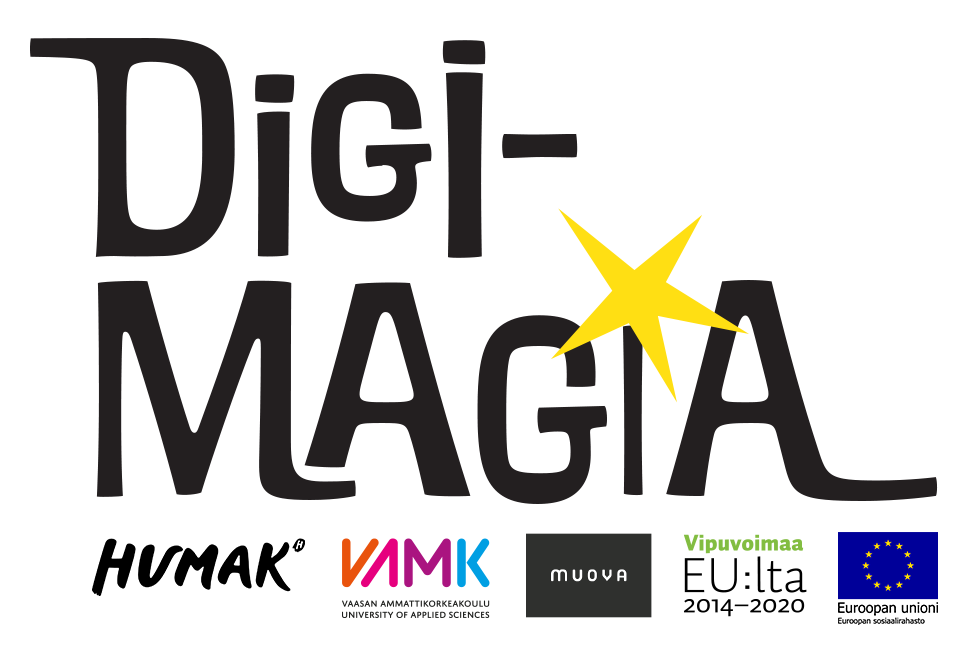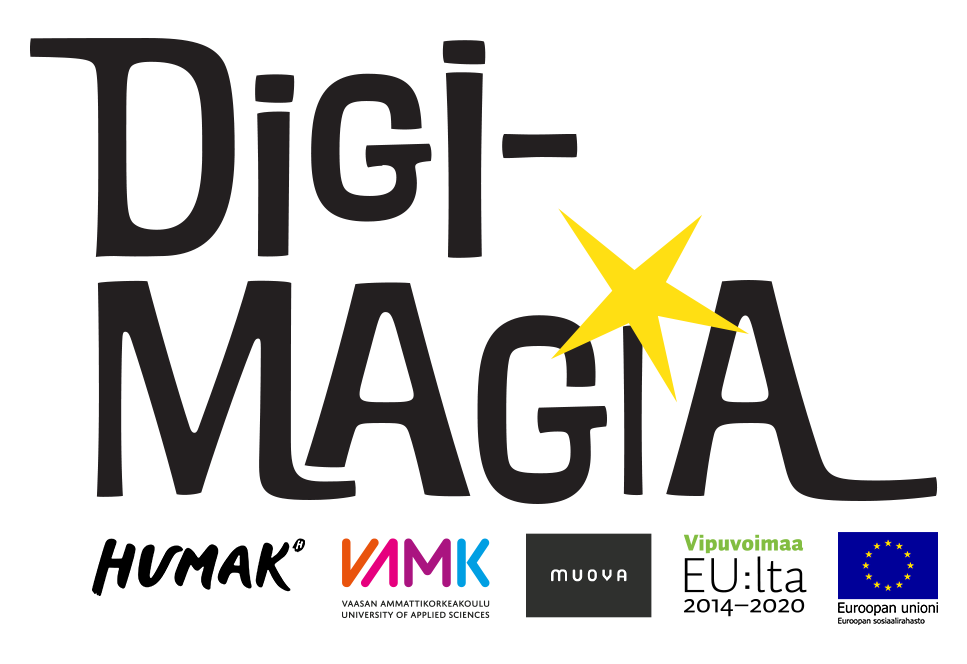Digimagia: from product into digital service – training programme for culture and art
The aim of the Digimagia project (The Digimagic) is to improve the operational capacity and earning potential of
cultural and artistic organizations and artistic and cultural actors with an immigrant background through digitalisation
and service design. The need for the project arose from the wide-ranging impact of the COVID-19 crisis on job
opportunities in the arts and culture sector and the creative sector. The corona pandemic has reduced the
opportunities for the creative industry, especially the performing arts and event production, to operate in an
unprecedented way. Reaching audiences and earning opportunities require new innovations in the cultural sector. In
the future, operators will need to be able to offer digital products even after the acute corona phase.
During the project, the Mooc online course targeted at actors in the arts and culture sector will be produced. The Mooc
online platform enables actors in the creative business sector to develop their own products or services into digital
service products through service design. The open Mooc online course is intended for independent development work.
Objectives
The goal of the Digimagia project is to develop a Mooc platform open to actors in the art and culture sector as well as artists with an immigrant background, which guides the development of a cultural product or service into a digital service design. The Mooc platform is intended for independent development work and its tip is especially the digitization of a product or service. With it, the operator in the cultural sector can, through a guided process, convert his business to digital or create new features for his product that can be accessed online. The Mooc platform is built and piloted in the project. To develop the Mooc platform, a year-long training program for digital productions is planned and implemented, where the service design entity built on the platform is tested and piloted. Implemented for the test group the aim of the training program is to develop the skills of producers of cultural services and events
as a provider of digital products. Expertise in service design aims to secure the continuation of production
in the future with the help of new digital products and new know-how.
The training course is built and developed in cooperation between HUMAK and the Design Center of Vaasa University of Applied Sciences.
The training period is divided into two parts: 1) Service design training 2) Idea incubator.
Actors participating in the training period participate in the development of the course by producing content in idea incubators andby giving feedback both on the functionality of the service design in the development of the digital product and during the project of the contents of the collected material bank. Selected participants commit to the project for the entire operating period and are their own with its case examples as the basis for building the content of the Mooc platform. Material used in the training period will be further developed to suit the Mooc platform through feedback and observations, and thus the developed during the training period the materials and information are widely usable by actors in the art and culture sector. Training program piloting therefore, based on experiences, a Mooc platform will be built.
In the training period of the project, the contents of such digital productions are analyzed by means of service design
development that can improve the customer experience, opportunities for public participation and community experiences. An important goal is also the development of the service provider’s earning logic so that digital
the services are financially profitable for their producers and offer employment opportunities for those in the cultural sector.
| Duration (päivämäärinä): | 01.09.2021 – 31.08.2023 |
| Project manager: | Petri Katajarinne |
| Email: | petri.katajarinne@humak.fi |
| Partners: | Vaasa University of Applied Sciences – Design Centre MUOVA |
| Funder: | EU: ESR -rahoitus |
| Budget: | > 100 000 – 300 000 euroa |


